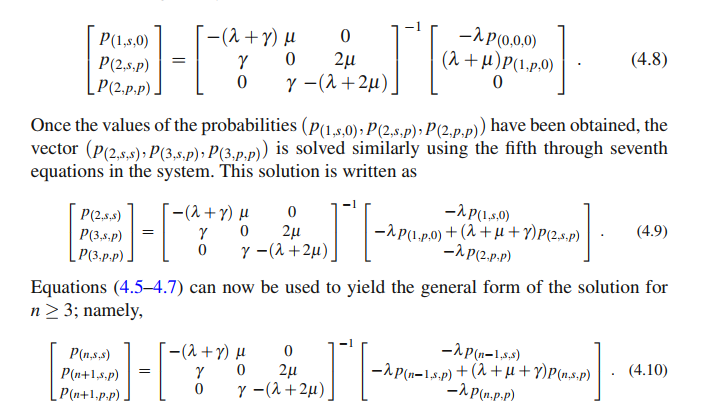Answered step by step
Verified Expert Solution
Question
1 Approved Answer
4.10. Consider a two-machine one-operator system. Let all times be exponentially distributed with mean rates: ( = 1, = 3, = 2/3) . Set p(0,0,0)
4.10. Consider a two-machine one-operator system. Let all times be exponentially distributed with mean rates: ( = 1, = 3, = 2/3) .
Set p(0,0,0) = 0.0842, and determine the next ten probabilities; that is, p(1,p,0) and then one set of three probabilities for each of the three equation-set forms similar to Eqs. (4.8)(4.10). PLEASE DO NOT USE CHATGBT.

Step by Step Solution
There are 3 Steps involved in it
Step: 1

Get Instant Access to Expert-Tailored Solutions
See step-by-step solutions with expert insights and AI powered tools for academic success
Step: 2

Step: 3

Ace Your Homework with AI
Get the answers you need in no time with our AI-driven, step-by-step assistance
Get Started


